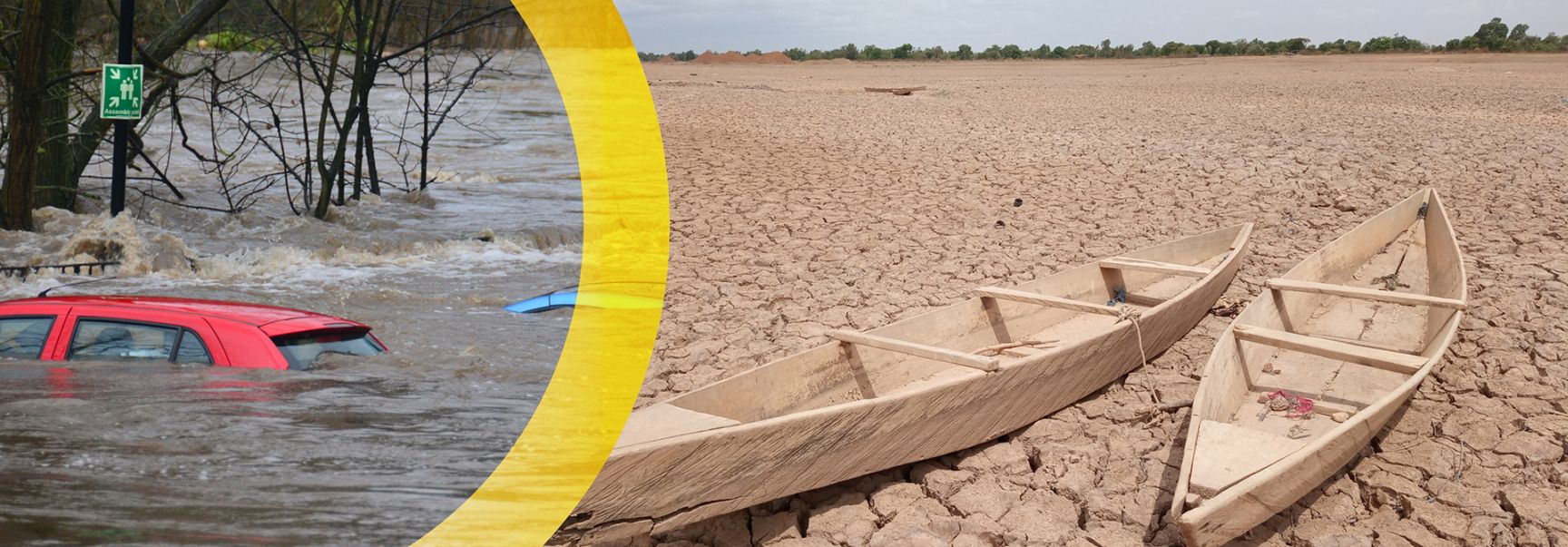Data science in environmental economics research
Today, the availability of data coming from numerous different sources and formats, e.g.; remote sensing data, geospatial data, very large and/or high frequency datasets, allows to empirically analyze problems in environmental economics in an unpreceded detail. In order to process and use this data, a large set of different tools need to be applied. The 2024 EAERE summer school will focus on the intersection of environmental economics and data science, with a particular emphasis on the increasing use of data science and novel statistical methods in environmental economics research. This includes the use of machine learning, spatial statistics and data analysis, remote sensing, the use of "alternative data" and big data applications. The goal of the summer school is to address new developments in these fields, to highlight their potential applications in environmental economics, and to foster the implementation of novel empirical methods in environmental economics research.
Scientific coordination: Paul A. Raschky, Monash University, Australia
On-site organisation: Stefan Borsky, University of Graz
Speakers:
Yanos Zylberberg, University of Bristol, UK
Ed Rubin, University of Oregon, USA
Joëlle Noailly, Geneva Graduate Institute, Vrije Universiteit Amsterdam, NL
Ludovica Gazze, University of Warwick, UK
The organisers would like to thank the following for their support Faculty of Social and Economic Sciences and the Profile Area Climate Change Graz.
Transnational and cascading climate risks and adaptation
The impacts of climate change manifest themselves at the local level, but through physical connections such as watersheds, international trade or migration, the consequences of climate change are transmitted across borders. Due to the high complexity of global supply chains, these transnational climate risks affect not only climate-sensitive sectors such as agriculture, but also industrial and service sectors that are usually not in the focus of climate change impact assessments. The IPCC and several national and international organizations have therefore noted that transnational climate risks are potentially very damaging, especially for countries that are heavily dependent on trade. However, the economic literature on this topic is still emerging. The summer school will therefore look at different economic modeling approaches that are suitable for assessing transnational and cascading climate risks. The presentations will cover different approaches to assess economic impacts and adaptation in different areas such as flooding, heat, drought and migration, etc. Another topic is the modeling of response strategies, including international adaptation finance. Students will deepen their own core methodological knowledge, gain a better understanding of complementary methods and gain insights into novel modeling tools from related fields such as political science.
Scientific coordination: Francesco Bosello, CMCC
Local organization: Birgit Bednar-Friedl (University of Graz)
Faculty:
Francesco Bosello, CMCC
Cristina Cattaneo, EIEE
Rob Dellink, OECD
Jasper Verschuur, University of Oxford
Ilona Otto, University of Graz and PIK Potsdam / Birgit Bednar-Friedl, University of Graz
The organizers would like to thank the Faculty of Social Sciences and Economics for its support.
Behavioral environmental economics
The scientific as well as political interest in behavioral responses to environmental policy as well as measures beside the traditional policy instruments (like taxes, permits or command and control) has grown considerably in the last twenty years. “Behavioral schemes” like providing information can have significant impacts on environmental decision making. Framing can influence the individual response to environmental policy. Strengthening social norms, changing peoples’ perception, self-identity and preferences may have stronger effects on individual behavior than prices. A related and important topic in this field, which recently got some scientific attention, is the called “green nudging”. The literature on this topic is broad and analyzes the impact of changing the default option of energy consumption or reduction of food waste and the impact of providing information on social comparison on pro-environmental behavior. The EAERE summer school on this topic will focus on the theoretical foundations of behavioral economics and psychology, empirical studies as well as experimental evidence Hence, main feature of this summer school is its interdisciplinary nature, with economists and psychologists.
Scientific coordination: Daan van Soest (Tilburg University)
Local organizer: Michael Finus (University of Graz)
Faculty:
Marco Casari, University of Bologna
Astrid Dannenberg, University of Kassel
Timo Goeschl, University of Heidelberg
Daan van Soest, Tilburg University
Linda Steg, University of Groningen
The organizers would like to thank the Faculty of Social Sciences and Economics for its support.
The summer school was organized in cooperation with the Austrian Business Association (NOeG).
Design and assessment of packages of measures for carbon-neutral development pathways
In alignment with the Paris targets the EU has committed to carbon neutrality by mid-century. All member states are therefore required to propose and update their long-term strategies for 2050 accordingly. The summer school discusses the current state of economic modeling to support the design of the respective instruments and their timing, as well as the (in)effectiveness of policy packages in place. Issues addressed concern how to address multidimensional societal targets (e.g., as represented by the Sustainable Development Goals, SDGs), how to build upon the IPCC long term scenario framework in path design (SSPs and SPAs), how to incorporate uncertainties in social and technological innovation, how to account for preferences changing over time, how to design the sequencing of instrument packages over time, and how to account for interdependencies across instruments. Students will deepen their knowledge of their own core methodological experience, as well as get a better understanding of complementary methods, enabling them to better link up with other methodologies. The concept of the summer school reflects the notion that the analyses of long-term development in a complex technological and societal setting relies upon building and linking a range of conceptual approaches, methodologically building upon and advancing Integrated Assessment Modeling, General Equilibrium Theory, Scenario Analysis, Real Options Theory, and Econometric Approaches (as well as their respective link).
Scientific coordination: Herman Vollebergh (Tilburg University)
Local organizer: Karl Steininger (University of Graz)
Faculty:
Antoine Dechezlepretre, London School of Economics & OECD
Sabine Fuss, Mercator Research Institute Berlin
Reyer Gerlagh, Tilburg University
Cameron Hepburn, Oxford University
Herman Vollebergh, Tilburg University
The organizers would like to thank the Faculty of Social Sciences and Economics for its support.
The summer school was organized in cooperation with the Austrian Business Association (NOeG).



